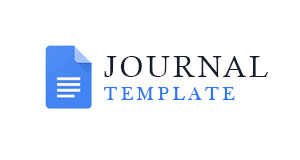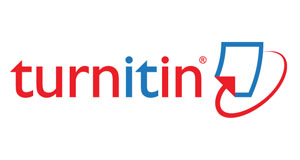Implementation Of Prophetic Leadership Values In Human Resource Management In The Digital Era
Abstract
Digital transformation has introduced new challenges in human resource management, necessitating an adaptive leadership style that also upholds core values. This study investigates and analyzes how prophetic leadership values can be applied in contemporary human resource management by interpreting leadership verses from the Qur'an*. Employing a qualitative methodology that combines thematic interpretation and content analysis, the research focuses on 47 Quranic verses that pertain to leadership, correlating them with modern HRM principles. The findings highlight five key prophetic leadership values that are pertinent to HRM in today's digital landscape: (1) al-'adalah (justice) in reward and performance management, (2) al-amanah (trust) in talent management, (3) at-tawazun (balance) in work-life integration, (4) al-hikmah (wisdom) in decision-making processes, and (5) al-mas'uliyyah (accountability) in governance systems. The proposed implementation model offers a new framework for embedding prophetic values into digital HRM practices, structured around three levels of transformation: mindset, systems, and technology. This research enhances the Sharia management knowledge base and provides practical solutions for organizations to align digital transformation with Islamic leadership principles.
Keywords
Full Text:
PDFReferences
Abdullah, A. (2023). Dimensi epistemologis-metodologis pendidikan Islam (pp. 78–92). Pustaka Pelajar.
Ahmed, H. (2023). Digital transformation in Islamic organizations: Challenges and opportunities. Journal of Islamic Business and Management, 12(1), 89–104. IIIE.
Al-Farmawi, A. H. (2022). Metode tafsir maudhu'i dan cara penerapannya (R. Anwar, Trans.) (pp. 23–45). Pustaka Setia.
Al-Qurthubi, A. A. M. (2019). Al-Jami' li Ahkam Al-Qur'an (F. Rahman, Trans.) (p. 278). Pustaka Azzam.
Antonio, M. S. (2020). Muhammad SAW: The super leader super manager (pp. 67–89). Tazkia Publishing.
Antonio, M. S. (2022). Prophetic leadership: Nilai-nilai kepemimpinan Rasulullah dalam manajemen modern (p. 78). Tazkia Publishing.
As-Suwaidan, T. M., & Basyarahil, F. U. (2019). Melahirkan pemimpin masa depan (M. Habiburrahim, Trans.) (p. 42). Gema Insani Press.
Azzahra, F. (2022). Implementasi MSDM profetik dalam organisasi modern (p. 212). UNAIR Press.
Az-Zuhaili, W. (2022). Tafsir Al-Munir: Aqidah, syariah, dan manhaj (A. H. al-Kattani et al., Trans.) (pp. 234–256). Gema Insani Press.
Creswell, J. W. (2022). Research design: Qualitative, quantitative, and mixed methods approaches (pp. 87–89). SAGE Publications.
Deloitte. (2023). Global human capital trends survey (p. 25). Deloitte Insights.
Denzin, N. K. (2020). Handbook of qualitative research (D. Dariyatno, Trans.) (p. 178). Pustaka Pelajar.
Fahroni, A. (2020). Kepemimpinan dalam perspektif Al-Quran: Implementasi modern (p. 78). Mizan.
Hafidhuddin, D. (2023). Manajemen syariah dalam praktik (pp. 123–145). Gema Insani Press.
Hamka. (2022). Tafsir Al-Azhar (pp. 167–189). Gema Insani Press.
Jusmaliani. (2022). Pengelolaan sumber daya insani (pp. 45–67). Bumi Aksara.
Kodir, A. F. (2022). Qur'anic values and modern management: A conceptual analysis. International Journal of Islamic Management, 3(2), 112–128. UIN Press.
Krippendorff, K. (2018). Content analysis: An introduction to its methodology (p. 25). SAGE Publications.
McKinsey & Company. (2023). The future of work: Rethinking leadership in the digital age (p. 12). McKinsey Global Institute.
Nazir, M. (2022). Metode penelitian (pp. 111–123). Ghalia Indonesia.
Nurhasanah, S. (2022). Penilaian kinerja dalam manajemen Islam (p. 112). UII Press.
Palmer, R. E. (2019). Hermeneutika: Teori baru mengenai interpretasi (M. Hery, Trans.) (p. 87). Pustaka Pelajar.
Rafiki, A. (2023). Islamic leadership in human resource management: Status and future agenda. Journal of Islamic Management Studies, 4(1), 45–62. UUM Press.
Rahman, A. (2021). Kompensasi perspektif syariah: Teori dan praktik (p. 156). Airlangga University Press.
Ridwan, M. (2023). Kepemimpinan Islam di era disrupsi digital (p. 134). BPFE UGM.
Rivai, V. (2023). Islamic human capital management: Manajemen sumber daya insani (pp. 78–102). Rajawali Pers.
Shihab, M. Q. (2019). Membumikan Al-Qur'an: Fungsi dan peran wahyu dalam kehidupan masyarakat (p. 157). Mizan.
Shihab, M. Q. (2021). Tafsir Al-Misbah: Pesan, kesan dan keserasian Al-Qur'an (p. 152). Lentera Hati.
Shihab, M. Q. (2021). Wawasan Al-Qur'an: Tafsir tematik atas pelbagai persoalan umat (p. 334). Mizan.
Shihab, M. Q. (2023). Membumikan Al-Qur'an: Fungsi dan peran wahyu dalam kehidupan masyarakat (pp. 156–178). Mizan.
Sugiyono. (2023). Metode penelitian kualitatif (pp. 234–256). Alfabeta.
Syafii, A. (2023). Transformasi digital dalam perspektif manajemen Islami (p. 67). Prenadamedia Group.
Tho'in, M. (2021). Manajemen sumber daya manusia dalam perspektif Islam (p. 45). Rajawali Press.
Tobroni. (2022). Spiritual leadership: The problem solver krisis kepemimpinan dalam pendidikan Islam (pp. 45–78). UMM Press.
Tobroni. (2023). Prophetic leadership: Rekonstruksi model kepemimpinan berparadigma profetik (pp. 67–89). UMM Press.
Ulrich, D. (2022). Digital HR: What is it and where is it going? In The rise of HR: Wisdom from 73 thought leaders (pp. 359–369). HR Certification Institute.
Ulrich, D., & Dulebohn, J. H. (2021). Are we there yet? What's next for HR. Human Resource Management Review, 25(2), 188–204. Elsevier.
Yukl, G. (2021). Kepemimpinan dalam organisasi (B. Supriyanto, Trans.) (p. 89). Indeks.
Zed, M. (2023). Metode penelitian kepustakaan (pp. 89–102). Yayasan Obor Indonesia.
DOI: https://doi.org/10.24952/tijaroh.v10i2.13743
Refbacks
- There are currently no refbacks.
Copyright (c) 2025 At-tijaroh: Jurnal Ilmu Manajemen dan Bisnis Islam

This work is licensed under a Creative Commons Attribution-ShareAlike 4.0 International License.














